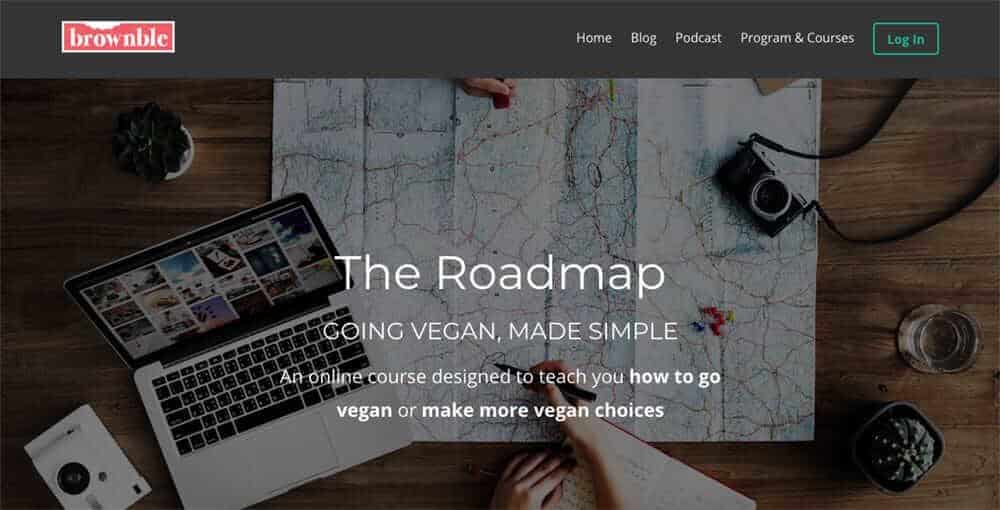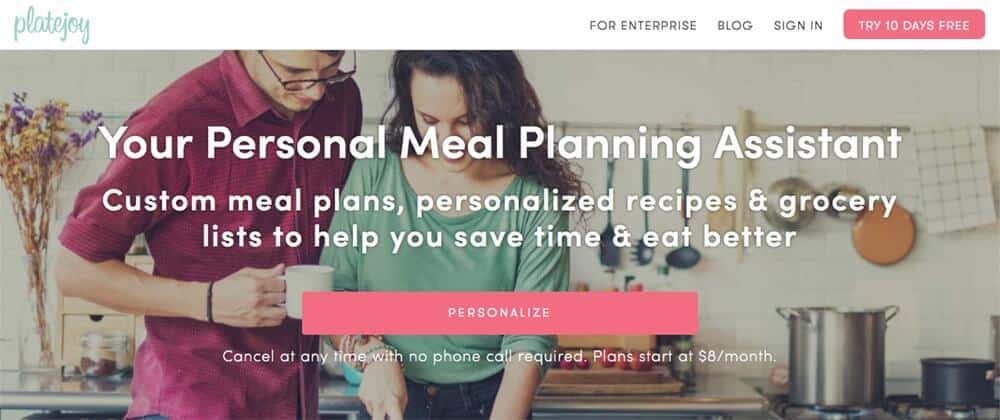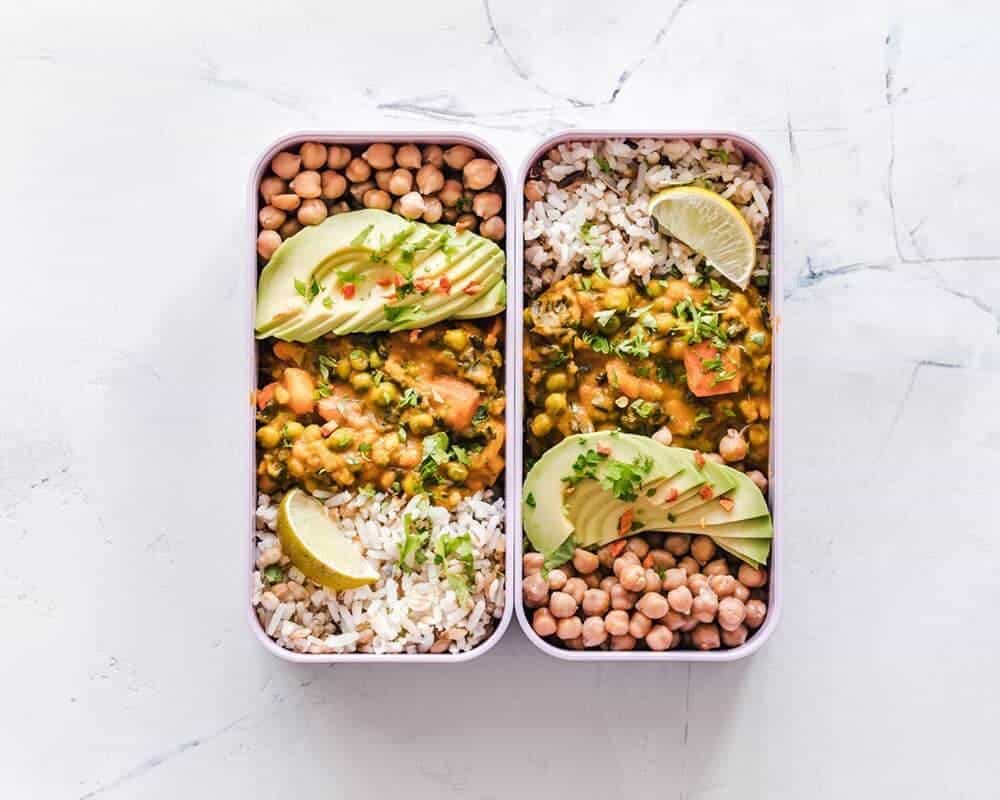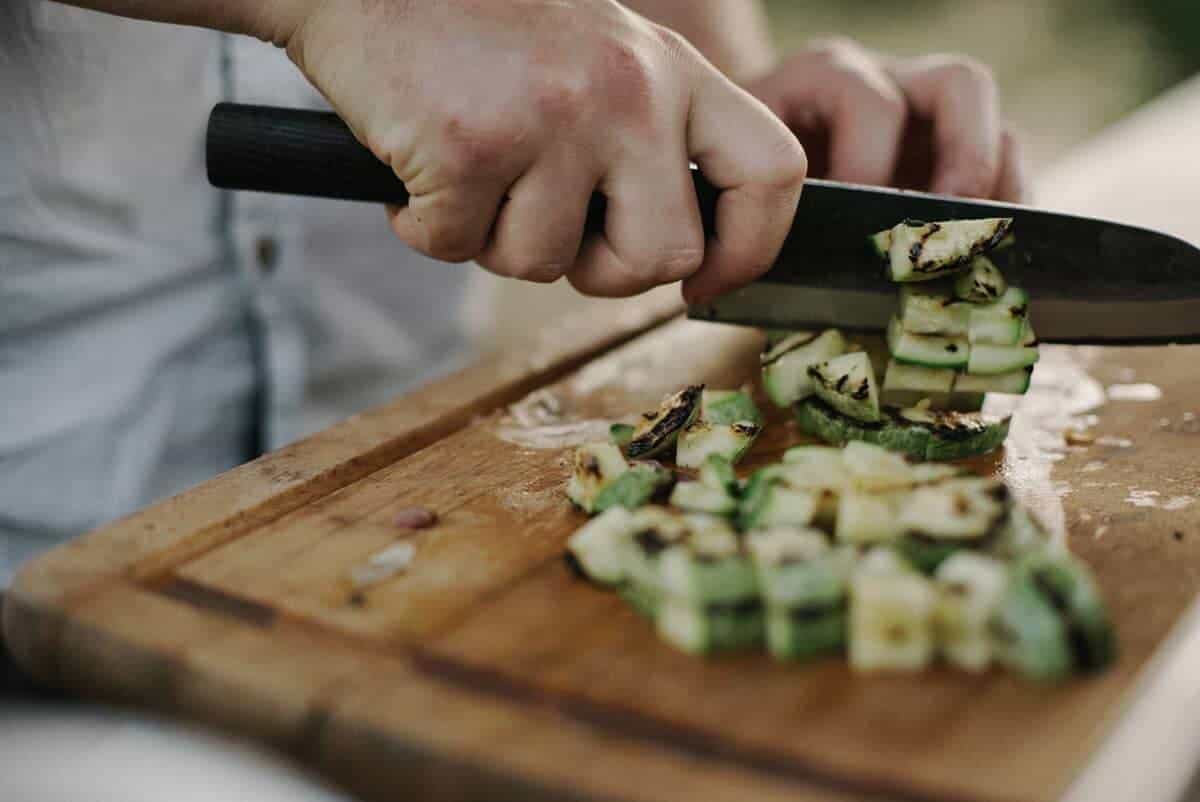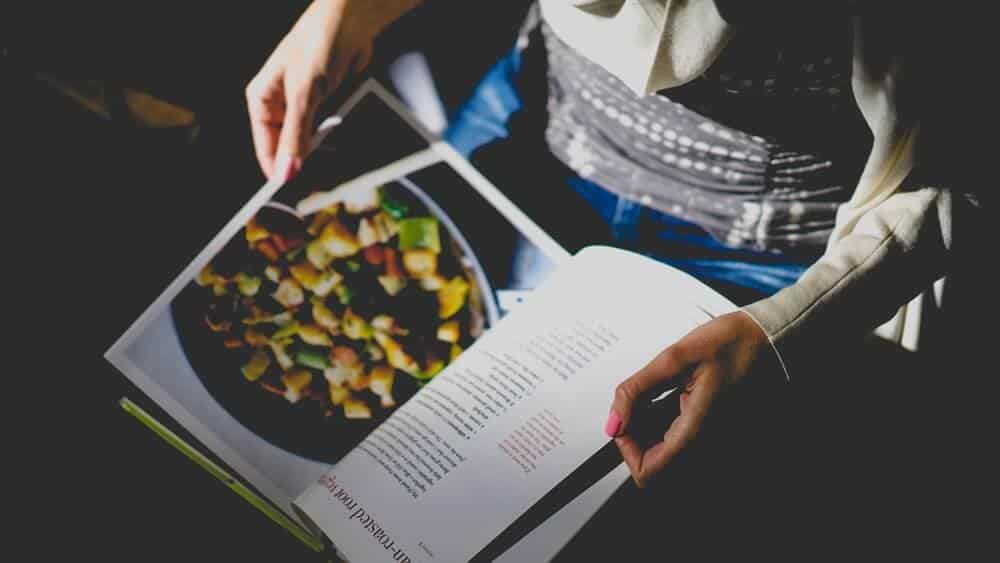This post may contain affiliate links (see full disclaimer here). This means if you make a purchase after clicking, I may get a small percentage of the sale, at absolutely no extra cost to you.
Veganism for beginners: when you first consider going vegan, it can seem a nearly insurmountable task. If you find yourself faced with the question of how to go vegan, I’m aiming to make it simpler for you with this article.
I’ll cover everything from why and how to become vegan to the benefits of a vegan diet and the answer to the most popular question, “what do vegans eat?” (Along with answers to all the other typical questions you’ll get as a new vegan, like where vegans get protein or whether you just eat tofu and twigs.)
Luckily, it’s getting easier and easier to be vegan every year! When I first went vegan in 2008, for example, the only vegan cheese I could find in the supermarket seemed to be made of waxy plastic, and most of the time when I asked in restaurants if they had any vegan options, staff stared at me blankly before asking “what’s a vegan?” These days, more and more supermarkets stock vegan cheese, ice cream and more and lots of restaurants are introducing vegan options.
Even if you don’t live in a vegan-friendly area, don’t fear: below you’ll find tips on how to navigate vegan living anywhere. Here’s how to go vegan for beginners.
Menu
1. What is veganism?
1a. Vegan vs. plant-based
2. FAQ
2a. What is vegan food and what can vegans eat?
2b. Why go vegan?
2c. Is veganism expensive?
2d. Can people of any age go vegan?
2e. Are vegan supplements needed?
2f. What should I do with my non-vegan belongings?
2g. What are the benefits of going vegan?
3. How to become vegan: transitioning to vegan
3a. Overnight vs. gradual change
3b. Vegan substitutes: yay or nay?
3c. Going vegan for a month
4. Top 10 tips for going vegan
4a. Start with a beginners mind
4b. Take your time and don’t sweat mistakes
4c. Add, don’t subtract
4d. Experiment & have fun
4e. Veganize your pantry & your home
4f. Get up to speed on your label reading
4g. Build a community & surround yourself with support
4h. Handle social pressure with grace
4i. Always be prepared!
4j. Don’t judge or get mad at people
5. Resources & help
5a. The Roadmap (course on going vegan)
5b. PlateJoy vegan meal planner
5c. Vegan meal delivery & meal kits
5d. Vegan online cooking classes
5e. Vegan books & cookbooks
5f. Vegan documentaries
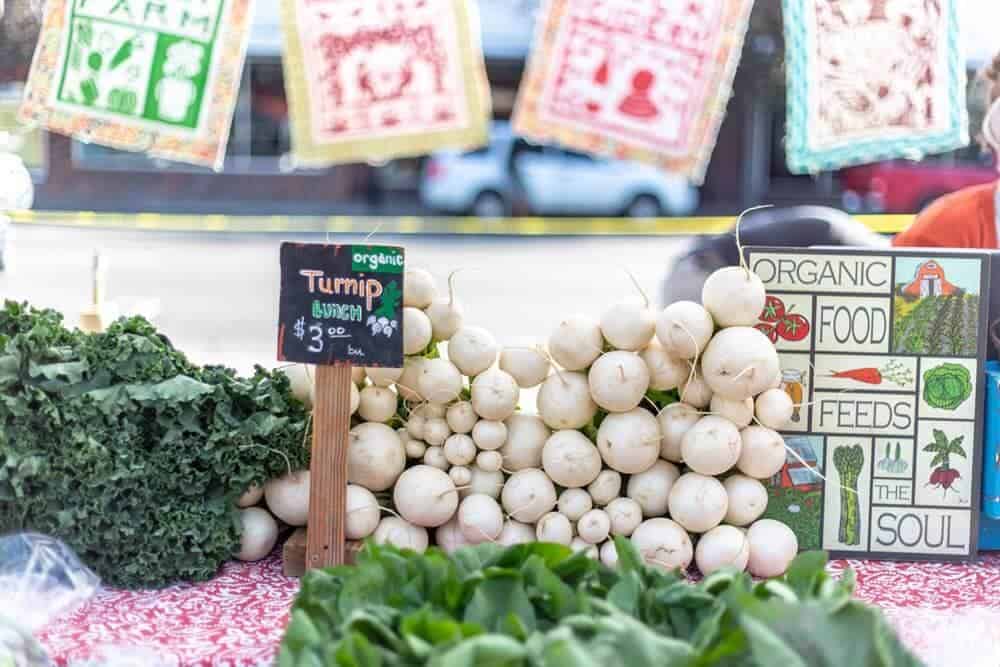
Veganism for Beginners: What is veganism?
“Veganism is a way of living which seeks to exclude, as far as is possible and practicable, all forms of exploitation of, and cruelty to, animals for food, clothing or any other purpose.” — The Vegan Society
Broadly speaking, vegans don’t consume animal products (meat, fish, dairy, eggs, honey or by-products), use products like cosmetics or personal care products that are tested on animals, wear leather, fur, wool or silk or take part in activities that involve the exploitation of animals, like zoos or circuses.
However, individual approaches vary a lot! As you can see from the Vegan Society’s definition, it is impossible to be entirely vegan in the world we live in today, so vegans are only vegan as far as practical and possible — and that can vary depending on an individual’s situation. For example, you might need to take medication that contains animal products or has been tested on animals (like all medicines in the US); that doesn’t make you less a vegan.
Personally, I think of veganism as a natural extension of a life philosophy I hold, of causing as little harm to others as possible. Therefore it’s not a diet I follow, but a natural extension of this philosophy, which has also informed my choices to be more eco-friendly and reduce waste, to shop less in supermarkets and more recently, to take a step away from fast fashion.
Vegan vs. Plant-Based
Recently, there’s been confusion and even controversy about the difference between vegan and plant-based.
Plant-based
Plant-based usually refers to a specific diet of whole-foods, plant-based foods. This means minimally processed, whole foods like grains, nuts, legumes and fruits and vegetables, and avoiding for the most part meat substitutes and similarly processed but vegan foods.
Sometimes plant-based is used by those who follow a vegan diet for health reasons but don’t subscribe to a vegan lifestyle (e.g. they may wear leather or use cosmetics that aren’t vegan).
There is a large deal of overlap, however. Some vegans eat plant-based and some plant-based eaters are also vegan.
There’s been some controversy about large companies describing foods as “plant-based” that contain mostly plant ingredients, e.g. a sausage made out of plants, eggs and cheese. In my view, that’s not plant-based at all! Lots of foods contain plant products…would we call a hamburger plant-based because it contains lettuce, pickles and a bun made of wheat? Sadly, a lot of companies have seen the boom in the plant-based marketplace and latched on. So it’s more important than ever to read ingredients and labels, even if a product is labeled plant-based!

FAQ
What is vegan food and what can vegans eat?
Sometimes as a society we think of vegan food as Martian food; I can’t believe the number of times someone has told me they’ve “never eaten” a vegan meal.
Actually, vegan food is just food!
Everyone eats vegan meals without realizing it: peanut butter & jam sandwiches, minestrone soup, a baked potato and salad.
It’s better to ask what do vegans NOT eat, rather than what we do, because we eat everything that’s not made with animal products!
Vegans eat: fruit, vegetables, nuts, seeds, beans, grains, fungi (mushrooms). Or more specifically: tomatoes, peppers, onions, zucchini/courgette, corn, mushrooms, apples, pears, bananas, kiwi, berries, melons, peanuts, almonds, cashews, walnuts, nut butters, sunflower seeds, chickpeas, black beans, lentils, kidney beans, wheat, pasta, bread, rice, cereal, seaweed, vegan burgers, non-dairy milk, plant-based cheese, vegan ice cream and much, much more.
In fact, you’ll find a vegan version of just about everything (whether that’s a pre-made product on supermarket shelves or a recipe online), whether you’re looking for vegan haggis or just vegan chocolate cake.
Why go vegan?
There are as many answers to the “why vegan?” question as there are vegans, but here are some of the most common reasons.
I’m assuming if you’re here you’re already interested in going vegan and likely know some of these reasons, so I won’t go into depth (see the resources section for books and documentaries to learn more).
Ethics & non-human animals
As a philosophy, veganism seeks to exclude the use of animals because, simply, animals are not ours to use.
Once we stop viewing animals as objects we can exploit, it becomes clear that the billions* of animals we as humans kill every year (for food, fashion and more), are entities in themselves who want to live their lives as much as any other living being. When we stop viewing them as commodities, we stop wanting to use them in any form.
*I tried to look for a more precise figure but found we don’t really know the number.
Ethics & human animals
Exploitation in animal agriculture doesn’t just take place with non-human animals.
Working conditions in slaughterhouses are terrible, with a high number of workers experiencing PTSD and other disorders, along with higher rates of alcohol and drug abuse and domestic violence.
The environment
It’s pretty clear we’re headed towards climate catastrophe. There are many reasons, but one of the biggest?
According to the UN, livestock account for around 14.5% of greenhouse gases, more than cars!
Global health & food security
To support a growing global population, experts say we need to reduce meat consumption.
Every quarter-pound hamburger requires 13 pounds of feed and 14.6 gallons of water.
Individual health
“Vegans tend to be thinner, have lower serum cholesterol, and lower blood pressure, reducing their risk of heart disease,” according to studies.
The ADA also states that vegetarians and vegans tend to have “lower blood pressure, lower rates of hypertension and type 2 diabetes than nonvegetarians…and lower overall cancer rates.”
It’s important to ensure you get enough of all nutrients and micronutrients and I think it’s crucial not to overstate the health benefits of a vegan diet; it won’t cure or prevent all diseases or health problems.
But if you can maintain a healthy diet while also eating better for the planet, animals and people, why not?
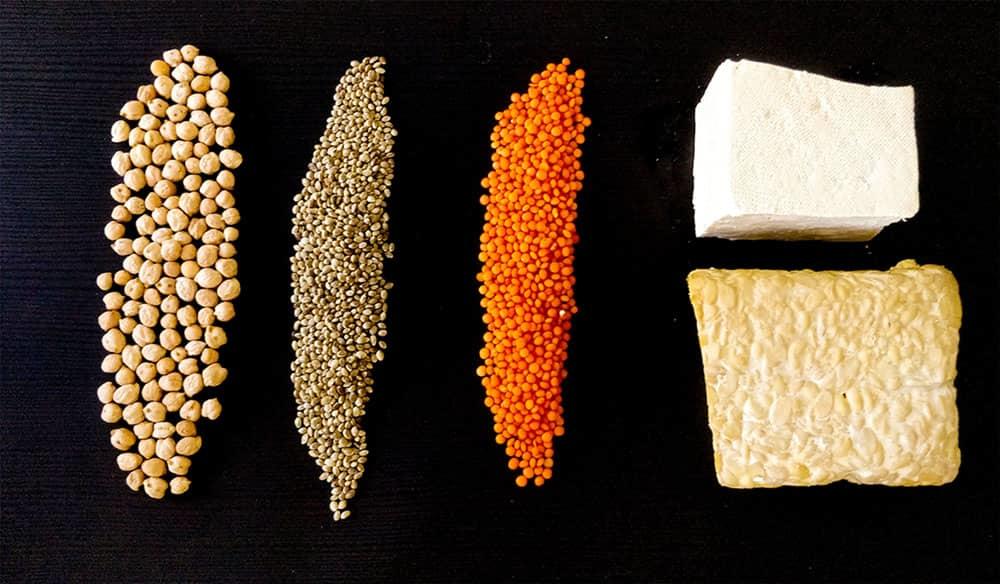
Is turning vegan expensive?
There’s a misconception that being vegan is expensive or solely the preserve of the wealthy.
Actually, meat is usually the most expensive item in the shopping basket.
However, it’s true that vegan alternatives like vegan burgers, ice cream and cheeses can be more expensive than their meat counterparts. That’s because right now, the demand is smaller and it’s more expensive to produce in smaller batches, but this will change as demand grows and so prices will come down.
In the meantime, base your meals around beans, grains and veggies and fruits to save money. Beans are some of the cheapest ingredients around!
The other exception is if you live in a food desert. There, it might not even be a question of cost but of access. You might not be able to find vegetables and fruits because there’s no accessible supermarket.
Can people of any age go vegan? What about my child, who wants to go vegan?
Parents should take extra care in making sure to meet the nutritional and caloric needs of children and adolescents. You can meet the needs but you need to plan meals appropriately and make sure they’re eating enough for energy (you might need to include more high-calories foods).

Are vegan supplements needed?
Contrary to popular belief, you don’t need to eat meat to get protein. Eat a varied vegan diet, and you’ll meet your protein needs easily.
However, there are certain nutrients you should pay attention to (by the way, this isn’t just a “vegan problem” — this Swiss study showed those following omnivorous diets had low intakes of more vitamins and minerals than the vegans in the study).
Calcium, iron and zinc are nutrients that can be obtained through a varied vegan diet, but you might want to put some thought into how you’ll include these and other vitamins in your diet at first (don’t worry, after awhile it will become second nature and you won’t think about it). Find out more here.
What do you absolutely NEED to supplement?
You ABSOLUTELY MUST eat foods fortified with vitamin B12 or take a B12 supplement. You may also need to supplement iodine and vitamin D, depending where you live).
B12
Vegans MUST include a source of B12 in the diet; that can be a vitamin or fortified vegan milk or nutritional yeast (make sure you get the nutritional yeast that says it has added B12, rather than the plain one, if you’re going down this route!).
By the way, it’s advised that anyone over the age of 50 take a vitamin B12 supplement or eat fortified foods.
Iodine
Iodine is one that you might need to supplement depending on where you live. In the US and some other countries, most table salt is iodized so just check yours. If it is, you’re good to go. If you live in the UK, on the other hand, most salt is NOT iodized and it’s hard to find. Instead, look for iodine-fortified plant milks or choose a supplement with it.
Vitamin D
Vitamin D, aka the sunshine vitamin, is a vitamin we synthesize through our skin. However, in northern latitudes there’s not enough UVB rays for us to make vitamin D. The further north you live, the longer this period lasts. The closer to the equator you are, the shorter the period (or you might be able to make vitamin D year-round if you live close enough to the equator). You can actually store vitamin D in your live over the winter, so whether you need to supplement in the winter depends on a few factors like how far north you live and how much sun you store up over the summer.
The best thing is to speak to your health care provider or consult your local health authority for advice on whether they recommend vitamin D supplementation. (Or, you can take a blood sample and consult your health care provider to assess your levels.) For example, in the UK, where I’m based now, the official advice is for everyone to consider a supplement in autumn and winter.
Supplements
Look for vegan supplements in a vegetable-based capsule (some capsules contain gelatin coatings, or non-vegan ingredients).
Personally, I take vitamins from Vegetology: this multivitamin, which contains vitamins B12 and D and iodine. I also take the Vegetology omega-3 EPA & DHA capsule, however this is not a required supplement. Read more about ALA & omega-3 here.
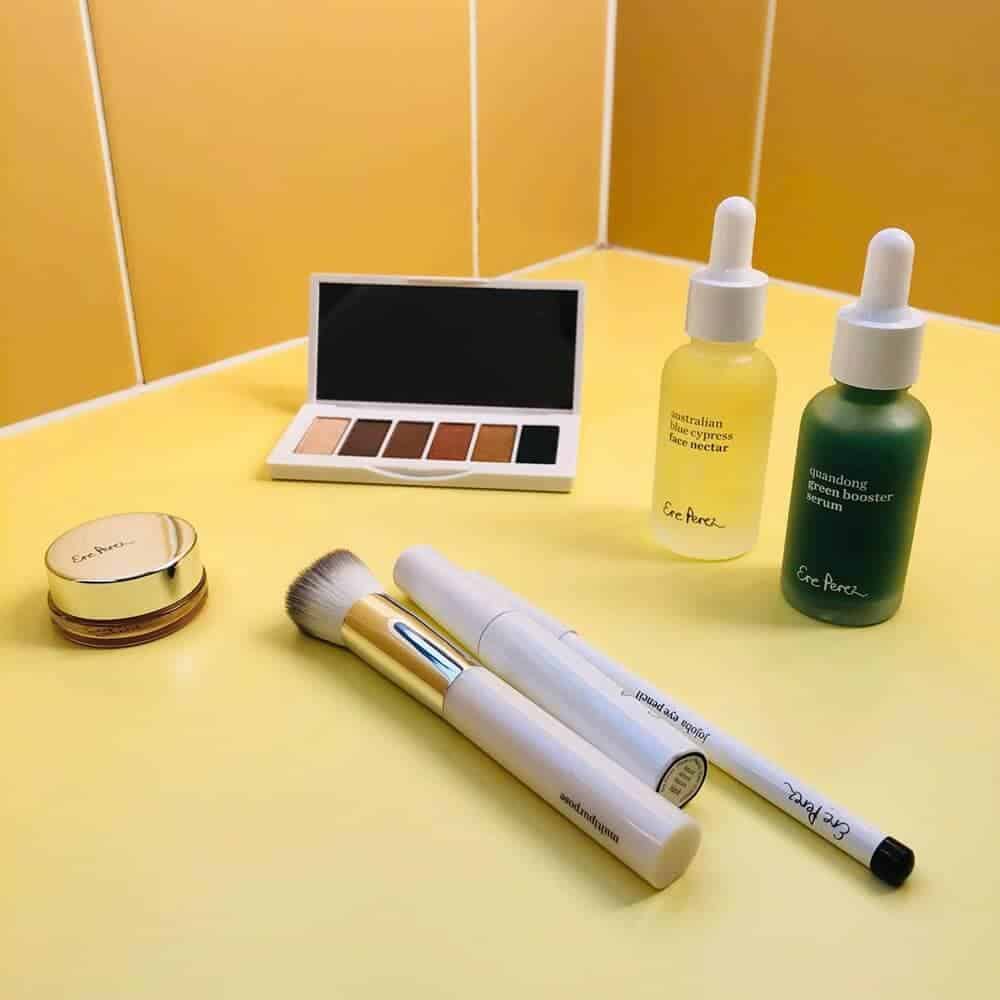
What should I do with my non-vegan belongings?
This is entirely up to you and your situation. Some people decide to give away leather bags and shoes and replace them with vegan alternatives. However, your financial situation might not make this possible and that’s okay! You might hear non-vegans questioning you and saying you’re “not really vegan” because you’re still wearing leather. Funnily enough, this accusation often comes from non-vegans, rather than other vegans, who remember when they first went vegan and understand. Regardless of who it comes from, ignore it. People will call into question your veganism on this journey, which brings us to…
How do I deal with non-vegan friends and family?
Often the most difficult aspect of going vegan, and one that is most frequently overlooked, is how to deal with non-vegan friends and family.
When we make the decision to go vegan, we spend a lot of time thinking about food — where to buy vegan alternatives, how to make our favorite recipes and which restaurants will be able to cater for us. Lost in the fray is the social aspect, and this is really critical.
Humans are social animals and a lot of recent studies show the importance of being accepted by our peer group. Being socially rejected actually causes us pain (or at least, brain scans have shown the same areas of the brain are activated as when we experience physical pain).
So any plan to go vegan needs to take this into account. When we make a change in our lives, whatever that is (moving, going vegan, giving up alcohol or taking up exercise when we didn’t previously do any), it can make (some of) our loved ones feel rejected.
Usually this is because they are worried we are rejecting THEM, because they differ from us in this respect. Reassure them that you’re not rejecting them, just the food. You can tell them or you can show them (preferably both).
If you have a holiday tradition with loved ones, don’t skip it because it revolves around meat dishes. Make a vegan version of comfort food and share it with everyone. You’ll get to participate in traditions AND show them vegan food is tasty. Win-win.
If you’re invited to a BBQ, picnic or dinner party, offer to bring vegan food to share. You might get lucky and your host might make you vegan food, but especially if you’re just starting out, they might be overwhelmed and not sure what to make. You can show them a list of what vegans eat, but offering to bring food helps — but be sure to bring extra to share, because people might be curious and want to try.
What are the benefits of going vegan?
Many lists about going vegan focus on the health benefits you might experience going vegan, but that really depends on what diet you ate previously, and what you transition to.
Personally, the major benefit I got from going vegan was relief in knowing that the food I ate was causing less harm — to animals and to the environment. I knew the reasons to be vegan, but like many I was scared of the actual change (see my next point below). Once I did make the change, I was so much happier, knowing my life was in line with my values.
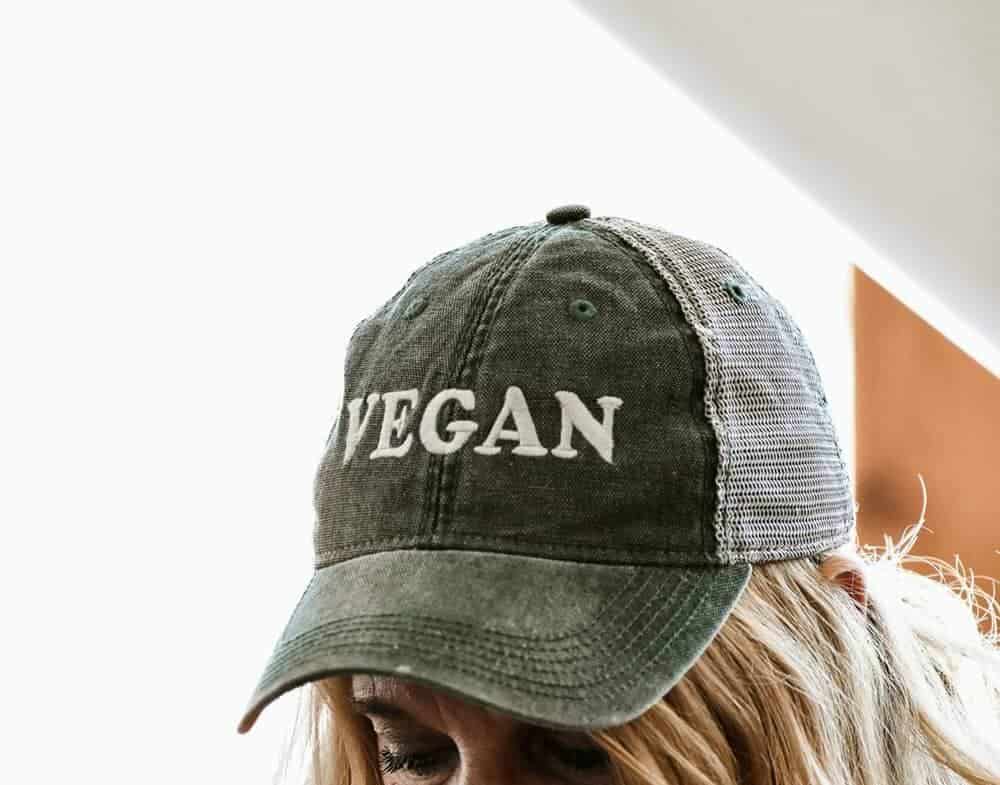
How to become vegan: transitioning to vegan
The idea of change is often scarier than the change itself.
Thus, learning how to eat vegan is often not as tricky as many expect. It’s the idea of giving up meat and cheese that’s daunting!
Once you know what to eat as a vegan, and have stocked your pantry with some vegan basics, it’s just a matter of…not eating/using animal products. As time goes on, it will get easier and easier until one day you realize being vegan is just automatic and you don’t need to think anymore about what to cook or eat.
Overnight vs. gradual change
Should you go vegan all at once or make the change gradually? That’s not a question I can answer for you because it depends on your personality and habits!
Some people like making sudden changes; when they feel inspired to take action, they jump in head first and make changes overnight. Maybe they sign up to a marathon even though they’ve never run before, and buy new shoes and start running the very next day. These are the people who go from eating burgers and steaks every day to vegan overnight.
Other people like to make changes in their lives more gradually. They’d never sign up to a marathon without practice; instead, they’d gradually start incorporating running into their life. Five minutes the first few days, then ten, twenty, an hour, until one day they realize they’re ready for a race and sign up. When they go vegan, they start by cutting out red meat, then chicken, then fish, then eggs and dairy, over the course of days or weeks.
Ask yourself what kind of person you are, and then you can decide which path to take.
P.S. Whichever route you take, don’t waste the food that’s currently in your pantry or fridge! Donate any non-vegan items to a food bank, a homeless person you see nearby or friends and family.
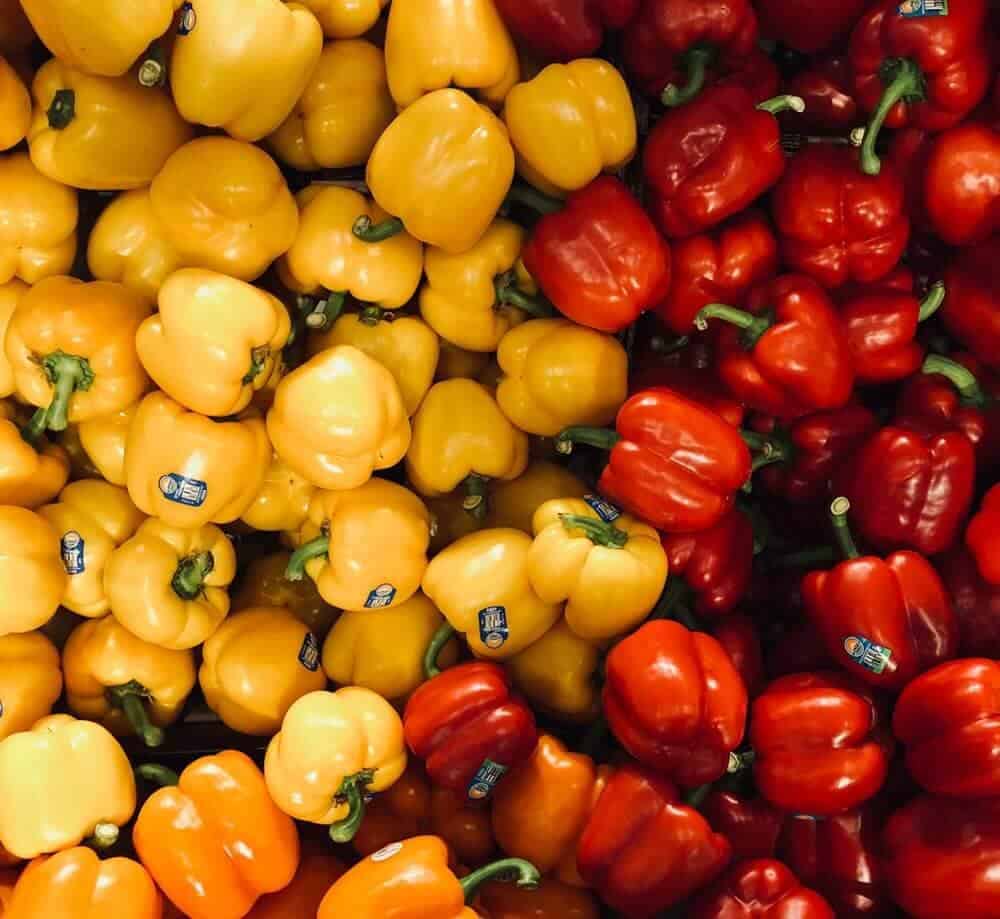
Vegan substitutes: yay or nay?
Vegan substitutes can be really helpful when starting a vegan diet. For example, if you’re used to eating burgers every Friday night, you can buy vegan burgers and swap those. Or if you want to make your favorite lasagne recipe, you can easily swap in vegan cheese and vegan ground meat.
On the other hand, some people find them disappointing if they don’t replicate the non-vegan food exactly.
Taste varies so much between different brands, as does taste preference between different people, so I recommend trying as many different versions as possible.
There are also tons of different recipes online! For example, I’m not a big fan of most vegan storebought cheeses, but I love making my own with cashews. But I only know that because I’ve tried so many different cheese brands and recipes.
Treat the first couple of months of being vegan as a time of experimentation. Try new recipes, new products and new flavors.
So, if you’re not sure which nondairy milk you like, don’t go to the store and buy three cartons of soymilk. Buy one carton of soymilk, one of oat milk and one of rice milk, and see which one you like best in your coffee. (Better yet, go to a coffee shop and try a different one in your coffee! If the people working are nice, they might even give you a little bit of each nondairy milk in a cup just to try, if you ask nicely and then buy a coffee.)
Going vegan for a month
A 30 day vegan challenge is a popular way to try out being vegan or to kickstart your transition to veganism.
If you’d like to try vegan for 30 days, but aren’t sure where to start, there are resources for you online and offline.
Brownble’s The Roadmap course contains everything you need to know to go vegan or make more vegan choices, and offers support (you can ask questions and get them answered in the online classroom). In the online course, filled with videos and written lessons, you’ll learn how to veganize your favorite meals, all about vegan nutrition, some delicious vegan recipes, how to eat vegan on a budget and how to deal with the social aspects of being vegan (like dealing with friends and family, at weddings and the holidays and more).
Veganuary’s website offers free guides to going vegan for beginners, a vegan menu plan for each week including simple and fast vegan meals for beginners and guides to eating out as a vegan. You can sign up for their annual challenge to go vegan for the month of January and you’ll get tips and ideas in your inbox.

Top 10 tips for going vegan
These are my top tips for going vegan. Things I’ve told various people over the years (especially when I was a vegan mentor and coach at the London Vegan Pledge. Things I wish someone had told me when I went vegan back in 2008.
1. Start with a beginners mind (and maybe you’ll experience some beginners luck!)
Start your vegan journey with a beginners mind, open to trying new things.
Try to think of the first month or two as a period of experimentation — and that’s a good thing!
You’ll get to try foods you’ve never tried, and probably some you’ve never even heard of.
Keep an open mind and try as many new things as possible, and you’ll discover a new world of tastes and brand-new favorites.
2. Take your time & don’t sweat mistakes
Take your time. Whether that means taking longer in your transition to going vegan, or just taking your time shopping and cooking, slow down!
Shopping
The first time you go to the store, it will take you longer than usual because you’ll be reading ingredient labels and looking at products, some of which have probably been sitting on the shelves for years but which you’ve never noticed.
There are also lots of vegan online shops now where you can buy specialty vegan products shipped to your door, without having to read any labels. Find my vegan online shopping directory here.
Choosing recipes
Spend some time browsing recipes online, in vegan magazines or vegan cookbooks.
You might see a lot of new ingredients, but don’t let that scare you off! Now is the time to experiment with different ingredients.
However, if you don’t have the inclination or the budget to buy new ingredients, you can make plenty of recipes using familiar ingredients in new ways.
Take your time looking at recipes and seeing which ones jump out at you.
Cooking
Take your time cooking, too. If you’re trying new recipes for the first time, it’s bound to take longer than the ones you’ve been making on auto-pilot for years.
You’ll soon find new vegan favorites and you’ll be able to whip those up quickly too.
If you’re pressed for time, look for quick and easy vegan recipes.
Don’t beat yourself up
Everyone makes mistakes; we’re all human.
So don’t beat yourself up when you discover that bread you’ve been enjoying for the last few weeks since going vegan actually contains butter.
It happens to all of us, even long-term vegans! Just buy a different loaf of bread next time, and don’t let it set you back.
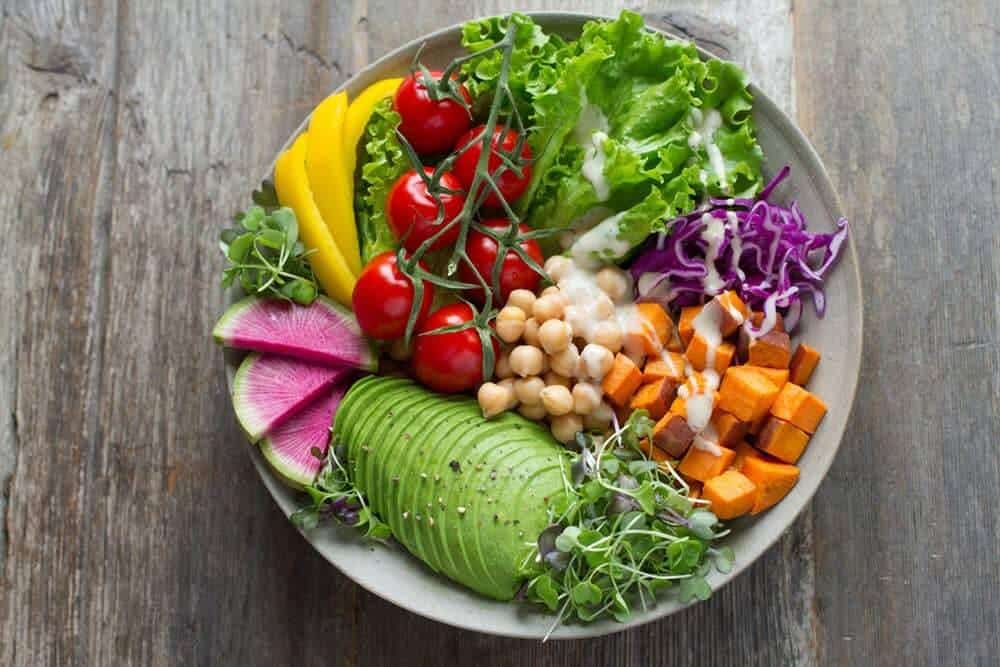
3. Add, don’t subtract
Many experts on forming long-lasting habits emphasizes the importance of adding, rather than subtracting. So for example, they advise people trying to make changes to their eating habits to add fruits and vegetables to their meals, rather than trying to eat fewer fast food meals.
Not only is it key to sticking with a change, adding instead of subtracting is more fun!
Don’t focus on the food you’re not eating (e.g. subtracting meat and dairy from meals), focus on the food you’re adding.
Add new fruits, vegetables, spices and cuisines to your meals.
If you’ve got an Asian or Latin supermarket nearby, check it out. Spend some time browsing the aisles and maybe buy some veggies or sauces you’ve never tried before.
4. Experiment & have fun
As I mentioned before, treat the first month or two of going vegan as a time to experiment. Have fun with it!
Try out different restaurants and cuisines, or new ingredients, sauces and spices at the store. Test out products you’ve never bought before.
A lot of vegans (myself included) say that they found they discovered more new foods since going vegan, rather than less.
Kenji Lopez-Alt calls it “diversity through restriction.” The simple fact that you are no longer choosing from your usual, fall-back meals at home and in restaurants means that you discover a world of new flavors through your experiments.
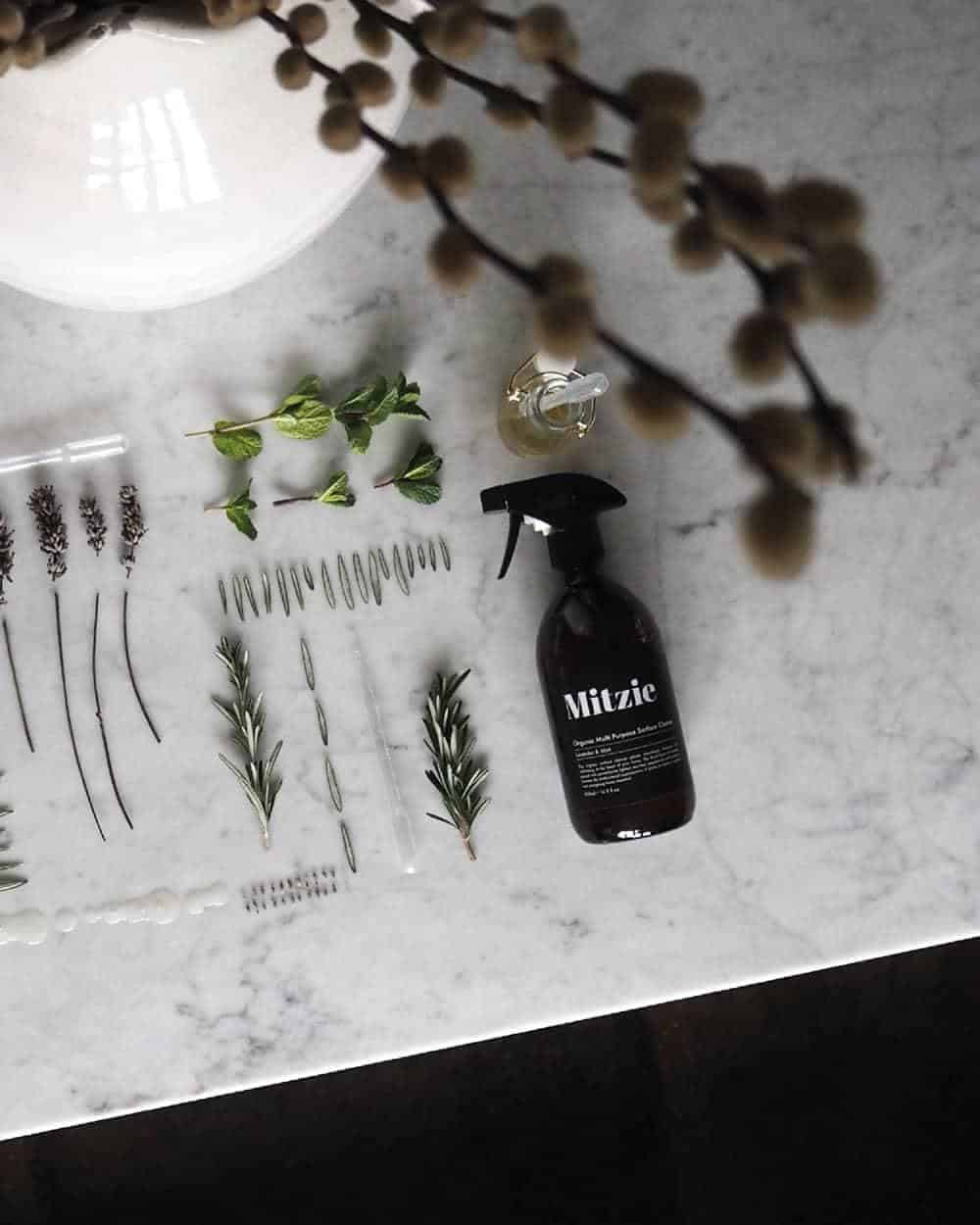
5. Veganize your pantry & home
Before you embark on your vegan journey or early on, I recommend going through your pantry and restocking it with some vegan staples.
You can find a vegan food list for beginners here.
It’s much easier to whip up vegan meals if you have staples in the pantry.
You might also want to buy some new appliances. These are the vegan must haves in the kitchen when it comes to appliances and kitchen equipment.
Finally, as you go along, you might want to start veganizing your home, e.g. cleaning products and toiletries. You’ll probably do this as you run out of old products. There are lots of lists online of vegan companies and products like this one. Some vegan transitions are much longer term, for example looking for a vegan mattress next time you’re buying a new one, which may not be for a decade.
6. Get up to speed on label reading
One skill you’ll definitely hone as a vegan is label reading.
At first, it can take awhile to read ingredients lists if you’re not used to it. Check out this list of non-vegan ingredients commonly found in products here.
Over time, you’ll get faster and faster. These days, I can skim a product in seconds and non-vegan ingredients stand out to me.
You’ll also start to develop new favorite products so you can just reach for these in the store, rather than checking labels each time.
It’s best to read ingredients even if a product seems like it should be vegan. For example, potato chips SEEM like they should be vegan…but sometimes they contain milk powder, for no apparent reason!

7. Build a community & surround yourself with support
The key to making any habit stick is to have a supportive community around you. In tip number 3, I said to add, not subtract. That doesn’t just apply to food — but to people, too!
Find new vegan friends so you can explore restaurants together or vent about frustrations with the foods on the holiday table.
The internet is a great place to find support — on Facebook groups or Instagram.
But it’s worth seeking out in-person connections if possible.
Check out meetup.com and Facebook to see if there are any local groups that hold meetups, potlucks or picnics.
If you can’t find out, start one!
8. Handle social pressure with grace
Dealing with non-vegan friends and family can be tough.
You’ll get a lot of questions about the why you’re going vegan and concerned (and not-so-concerned) questions about how you’ll get your protein and other nutrients.
Be prepared. Educate yourself as much as possible and be ready to answer their questions, but don’t be afraid to say if you don’t know the answer to their question (yet) but are happy to look into it and get back to them, if they really want to know.
As I mentioned before, often the resistance we encounter from others when we make changes in our lives is because they are worried we are rejecting THEM and moving away from them.
Reassure them that while you’ve gone vegan, you’re the same person.
Take part in the same traditions, like holiday meals, and bring your homemade vegan version of comfort foods.
Try not to get into arguments, but if someone is genuinely interested, take the time to talk to them about veganism. Who knows who’ll end up going vegan with you.
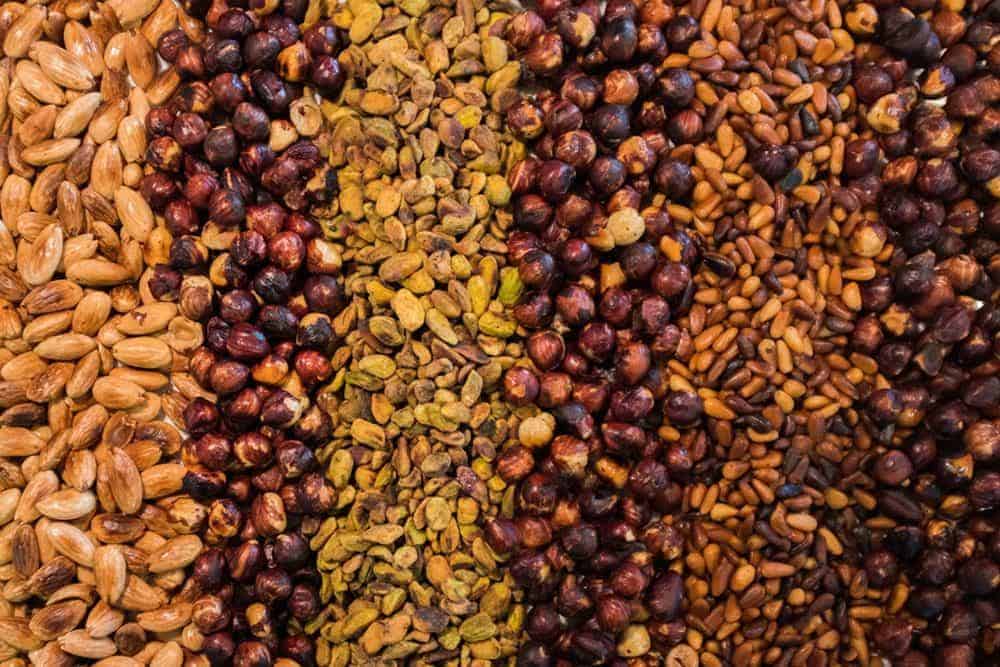
9. Always be prepared!
I consider this to be the golden rule of veganism: have vegan snacks with you or know where you can get vegan food.
Throw some nuts and seeds, dried fruit or Nakd bars into your bag or car, so you always have a snack on the run.
If you’re heading out for a meal with your family, look up options at the restaurant in advance, and call ahead and ask if they’ll make you a vegan meal if you don’t see anything on the menu (a lot of chefs are willing to make vegan food if given advance notice).
If you’re going on a road trip, pack vegan snacks. See my vegan road trip packing list here.
Know typical vegan options in different cuisines, so you can pick a vegan-friendly restaurant next time your friends are heading out to eat. I’ve put together a guide to eating out as a vegan here, with vegan options in more than 25 world cuisines.
Going on a trip? Plan ahead for every step: order a vegan meal on the plane, call your hotel and ask if they can provide vegan breakfast options and look up vegan-friendly restaurants in your destination. I’ve put together my book, The Essential Vegan Travel Guide, just for these situations. It’ll show you how to find vegan food anywhere in the world. Click here for more information.
10. Don’t judge or get mad at people
The first few times you get asked questions about being vegan, it will be a novelty, but after awhile, it can start to wear thin.
Don’t get annoyed at getting asked the same questions — people tend to wonder about the same things and make the same jokes. At this point, whip out a game of Vegan Bingo if you want to have some fun with it.
After awhile, you might start to get upset that the people in your life aren’t vegan.
You’ve told them everything you know. Maybe you’ve watched documentaries together. Why did the documentaries that caused this huge shift in your life not make THEM go vegan too?
It’s normal to start to get upset at this (in fact, I’d even venture to say it’s a stage everyone goes through), but try not to get angry.
You CAN win friends with (a really good) salad but you can’t make someone go vegan through force.
If you get angry or judgmental, you’re more likely to turn the other person off entirely than convince them to go vegan.
Channel this anger into vegan advocacy but try not to take it out on others in your life.
The best thing you can do is lead by example, and one day they might see the light. I can think of so many cases of people’s partners, family and friends who showed little interest in veganism for years until one day they suddenly had a lightbulb moment and went vegan (it’s happened in my life as well).
Think about your own path to going vegan: maybe you heard about veganism for years before you finally took the leap. (Or maybe you went vegan as soon as you heard about it: good for you! Just remember not everyone is as quick as you.)
Make some vegan friends (see tip number 7 above) and vent to them about the frustrating conversation you just had with Uncle Walter, who asked you for the five billionth time how you can eat vegetables when “clearly they must feel pain too” and that’s why he only eats steak. Whatever you do, don’t start shouting at Uncle Walter about how he’s an idiot. He’s 92 years old, for goodness sake.
Instead, engage in some caketivism (activism through serving delicious vegan cakes), or some vegan advocacy online or off.
Resources & help
Need some extra help to become vegan? I’d recommend one of the following resources if you need some additional help, and Brownble’s The Roadmap in particular if you’d like some support, a space to ask questions and an easy-to-follow class on how to become vegan for beginners, step by step.
The Roadmap
If you want to learn how to be vegan for beginners in an easy-to-understand, step-by-step way, Brownble’s The Roadmap is the best method I know of.
The most comprehensive course on going vegan I’ve come across, The Roadmap guides you through absolutely everything you could ever want to know about veganism: why to go vegan, how to do it, which nutrients to look out for (and which vegan vitamins to supplement), the best vegan substitutes, how to veganize your favorite recipes, vegan fashion, travel and more — there’s even a section of what to feed your pets!
The course is run by my friend Kim, a certified plant-based cook (who also runs the top-notch vegan cooking program Brownble’s cooking & lifestyle online course) and her husband Carlos, a doctor, so you are getting the info from two experts!
Plus, if you have questions as you go you can ask in the course and get support.
If you want to learn how to cook at the same time, combine The Roadmap with the Brownble online cooking & lifestyle program and save $$ here by buying the course bundle.
Learn how to go vegan the right way with The Roadmap.
Click here for more information.
Vegan meal plan service from PlateJoy
If you’re mainly just worried about what you’ll eat (although I’d counter that by saying one of the biggest challenges of going vegan is social pressure, not what’s actually on your plate — and refer you back to The Roadmap), then I recommend using a meal planner service like PlateJoy.
PlateJoy is an amazingly comprehensive meal planning service that allows you to input your requirements, from vegan food to how much time you have to cook, any allergies or foods you dislike (down to the individual ingredient level!) and more, and then you’ll receive a personalized meal plan each week, based on how many meals you plan to cook that week. The meal plan is also optimized to reduce food waste by using up ingredients across more than one recipe.
It will ask you what ingredients you already have in your pantry, and then it will give you a vegan grocery list or in some cities, the option to add everything on the list to an online shopping cart and order the groceries to your home.
Click here for more information.
Vegan meal delivery & meal kits
Maybe you just don’t have the time to cook right now, or are finding it complicated to learn how to cook vegan meals. That’s where vegan meal delivery and meal kits come in.
Meal delivery services will ship vegan meals to your door, and all you have to do is heat them up. Click here to see my guide to the best vegan meal delivery here.
Meal kits, on the other hand, come with pre-portioned ingredients that you then cook. They’re best if you like freshly-cooked meals but are daunted by the time or energy required to learn to make vegan meals. Click here to see my guide to the best vegan meal kits.
Vegan online cooking classes
While vegan meal delivery and meal kits can be great in the short-term, I highly recommend learning to cook for yourself — you’ll save time and eat better food!
Thanks to the magic of the internet, you can now take vegan cooking classes online, no matter where you’re located, even if you’re not in a major city with access to a vegan cooking school.
There are online vegan cooking classes for every taste and budget: from introductory courses to classes on specific cuisines (Thai, Vietnamese or Japanese, anyone?), raw food or baking.
Click here to read my guide to the best online vegan cooking classes.
Vegan books & cookbooks
Maybe you’re already a pretty confident cook, you’re just not sure where to start with a meat-free meal.
I’d recommend getting your hands on some vegan cookbooks (order online or from your local library).
I’ve got a list of the best vegan cookbooks, including the best vegan cookbooks for beginners, here. Click here to read it.
I’ve also put together a list of the best vegan books (not about cooking!) if you’d like to learn more about ethics, the environment or how to travel as a vegan. Click here to read and find the best vegan books for beginners.
Documentaries
If you prefer watching, rather than reading, there are so many documentaries on vegan subjects out there!
Check out this list of the best vegan documentaries.
Pin this for later
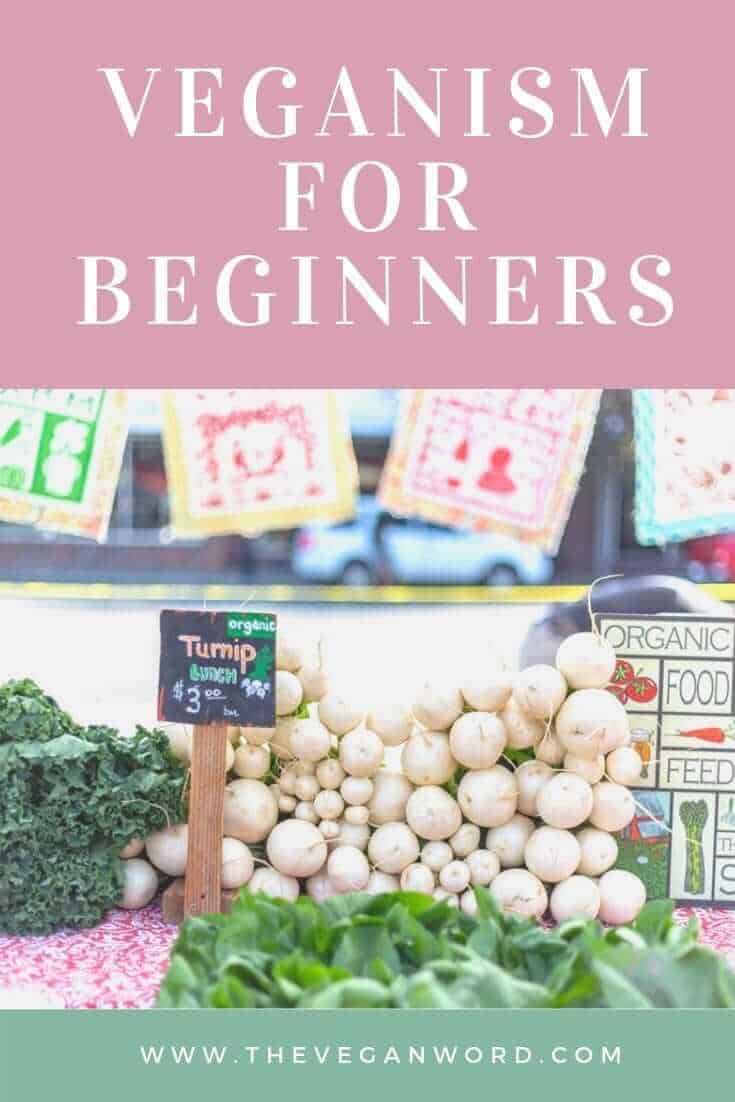
Want to learn more about veganism? Check out these vegan books!
Prefer audio? I’ve got a list of the best vegan podcasts here.
Ready to veganise your home? Find vegan products reviews here.
As an Amazon Associate I earn from qualifying purchases.


